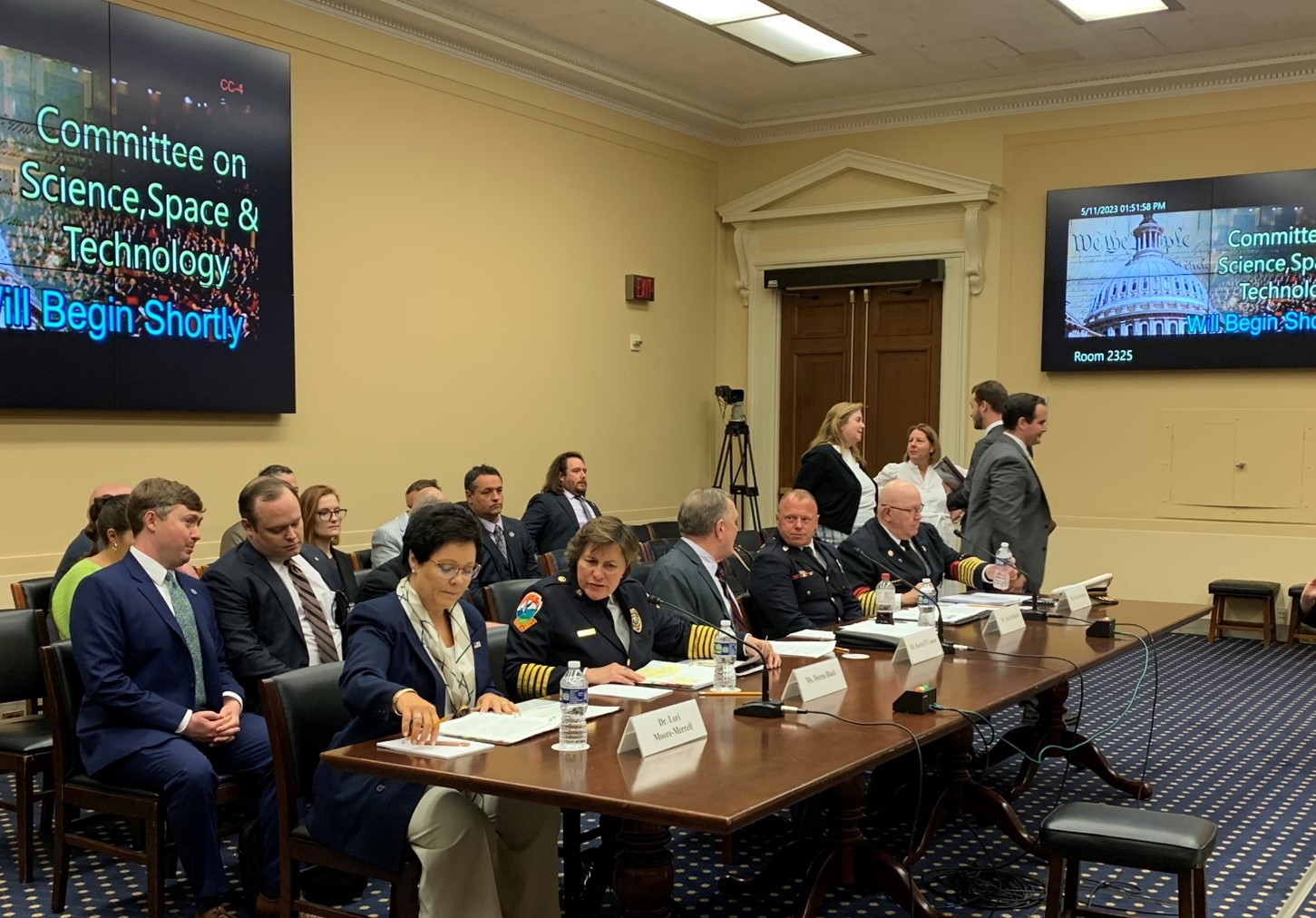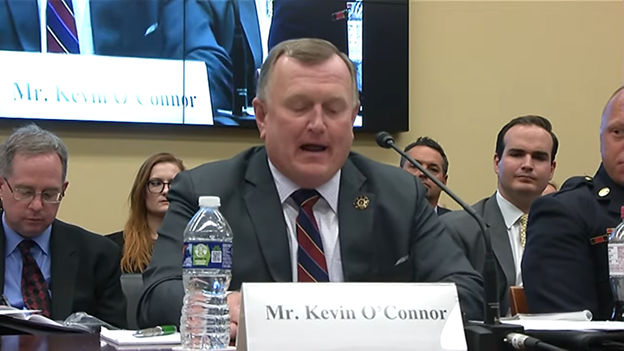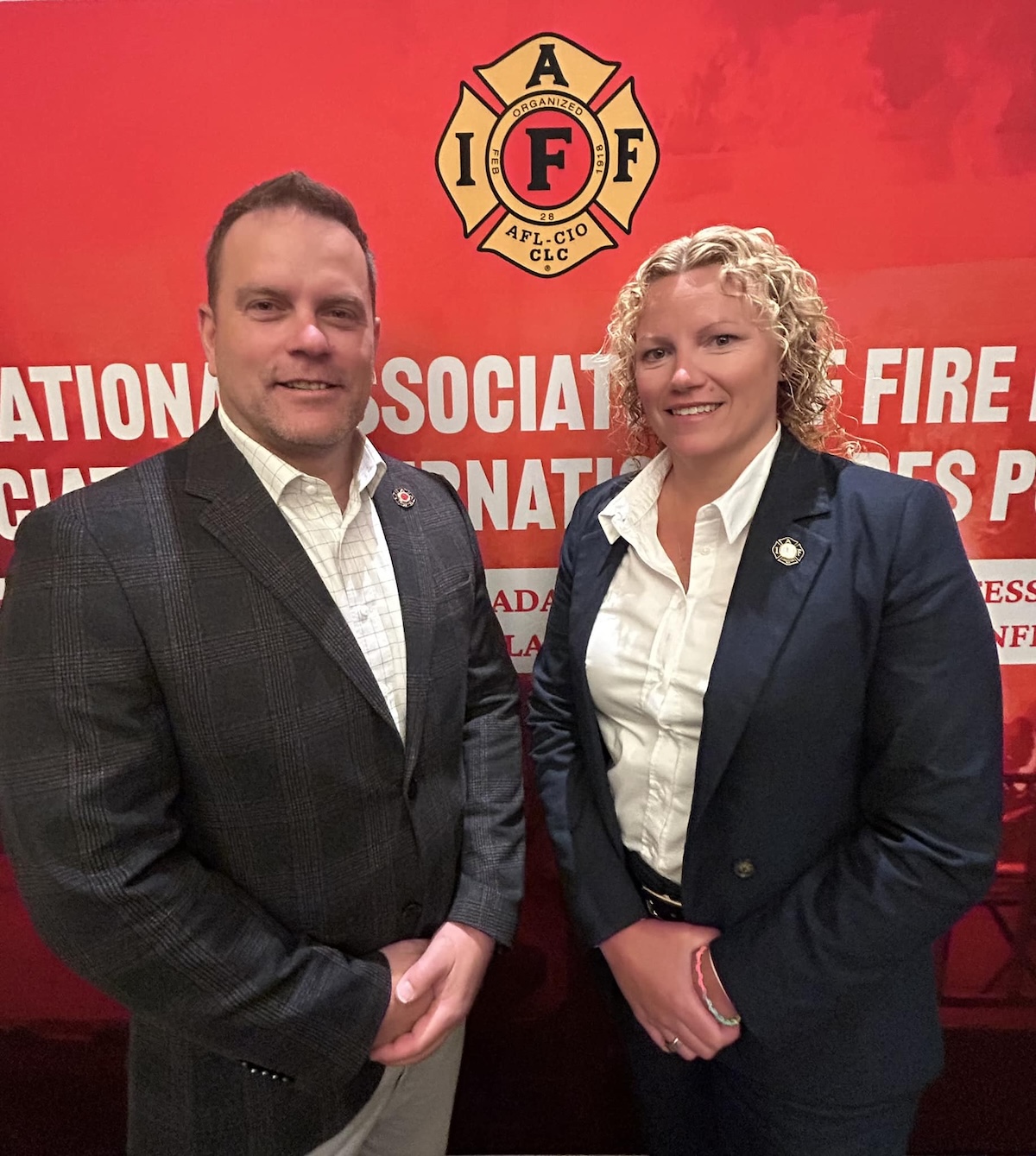
Fire service leaders took to Capitol Hill last week to urge Congress to approve federal funding for the U.S. Fire Administration (USFA) and essential fire grant programs that fire departments count on to keep their communities safe.
The IAFF, among other organizations, asked the U.S. House of Representatives to approve the reauthorization of funding for the USFA, and the Staffing for Adequate Fire and Emergency Response (SAFER) Grant and Assistance to Firefighters Grant (AFG) programs. Congress, as part of the annual budgeting process, must approve funding levels for the federal government’s investment in fire safety.
Funding for the SAFER and AFG programs is slated to sunset at the end of the fiscal year. The House Subcommittee on Research and Technology held a hearing on future funding of the USFA and its grant programs, where top fire service officials called on lawmakers to step up and fully invest in the nation’s public safety.
“Every fire fighter takes an oath to protect their communities to the best of their abilities, and we hold that oath sacred. We ask the U.S. Congress to have our backs and not make our jobs even more dangerous by failing to invest in the staffing, training, and equipment we need. Our safety rests in your hands,” Kevin O’Connor, Assistant to the General President For Governmental Affairs and Political Action, said at the hearing.
AFG grants provide critical funding for essential equipment, protective gear, emergency vehicles, training, and other resources to help fire fighters and other first responders protect the public and themselves from fire and related hazards.
Grants from the SAFER program are used to help local fire departments hire fire fighters to meet the staffing, response, and operational standards set by the National Fire Protection Association (NFPA).
The International and its affiliates, working with supportive elected officials, have secured these grants to ensure that hundreds of fire departments across the nation stay safely staffed and properly equipped, even through economic downturns.
In April, the U.S. Senate overwhelmingly passed S. 870, the Fire Grants and Safety Act, with a vote of 95 to 2. The Senate bill would reauthorize AFG and SAFER programs through 2030, while also authorizing $95 million for the USFA, an increase of $20 million from current levels.
The IAFF also supports providing the USFA with an additional $12.5 million to ensure the successful completion of their data management and IT upgrades.
Congress has consistently ensured the reauthorization of the SAFER/AFG program and the USFA by never allowing these fire service programs to lapse, despite any haggling over funding levels.
“Supporting our fire fighters and first responders has never been more essential than it is today. During COVID lockdowns, fire fighters, and other frontline workers carried the weight of a nation in crisis. Emergency services never stopped during lockdowns thanks to the brave men and women who showed up every day to put their lives on the line,” said Rep. Mike Collins (R-GA), chairman of the House Subcommittee on Research and Technology.
Collins said the COVID-19 pandemic led thousands of fire fighters, both career and volunteer, to exit the service, leaving many fire departments understaffed with fewer new recruits signing up for training.
Dr. Lori Moore-Merrell, U.S. Fire Administrator, addressed the hearing to provide lawmakers with an update on federal efforts to bolster the USFA and meet emerging challenges in the fire service, such as recruitment and retention, preparing fire fighters to handle the climate-driven increase in fires within the Wildland Urban Interface, establishing a comprehensive fire fighter cancer registry, and providing behavioral health assistance and suicide prevention initiatives for fire fighters.
Dr. Moore-Merrell also discussed the USFA’s mission to enhance its ability to collect, analyze, and report data from emergency calls to help improve public safety. This effort consists of redesigning the National Fire Incident Reporting System (NFIRS) with a more modern, cloud-based data capture system, which will be referred to as the National Emergency Response Information System (NERIS).




